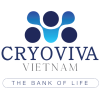FAQs – Frequently asked questions about stem cell storage
Currently, many questions are raised by parents concerning about the service of storing umbilical cord stem cells for their children. Cryoviva Vietnam has thoroughly answered the most frequently asked questions for parents.
ABOUT UMBILICAL CORD STEM CELLS
Every cell in our body has a specific function, but stem cells do not have a specific role and can become almost any cell required. Stem cells are undifferentiated cells that can turn into specific cells when the body needs it. Scientists are interested in stem cells, especially umbilical cord stem cells, because they help explain how certain body functions work and why they sometimes fail.
During pregnancy, the baby will be connected to the mother through the umbilical cord. The umbilical cord is not only the link between the mother and the baby, but also contains many types of stem cells that are valuable in treating more than 85 different diseases.
The umbilical cord segment contains many types of valuable stem cells, in which there are 3 notable types of stem cells that can be used for treatment:
1) Hematopoietic stem cells (HSCs)
2) Mesenchymal stem cells (MSCs)
3) Epithelial stem cells (EpSCs)
Umbilical cord hematopoietic stem cells (HSCs) are derived from umbilical cord blood. These stem cells are isolated from umbilical cord blood, differentiated into red blood cells, white blood cells, and platelets, and capable of treating dangerous diseases of the hematopoietic system including blood cancer, marrow failure, severe immune disorder diseases, congenital anemia, thalassemia, leukemia, lymphoma, etc.
Hematopoietic stem cells can only be used once for the baby or a relative who has a tissue compatible complex matching the baby.
Mesenchymal stem cells (MSCs) are derived from the umbilical cord and amnion. These cells are separated from the umbilical cord, differentiated into tissue cells and organs in the body, such as liver, heart, muscle, cartilage and function in curing diseases such as osteoarthritis, diabetes, multiple sclerosis, heart failure, cirrhosis, anti-aging infusion, hormonal balance to improve quality of life.
Epithelial stem cells (EpSCs) are derived from the umbilical cord and amnion. EpSCs form the soft tissues that connect, support, or surround the body’s organs including the cornea, skin, and liver. They are capable of treating skin wounds, ocular surface disorders and persistent epithelial defects of the eye.

ABOUT UMBILICAL CORD STORAGE PROCEDURE



